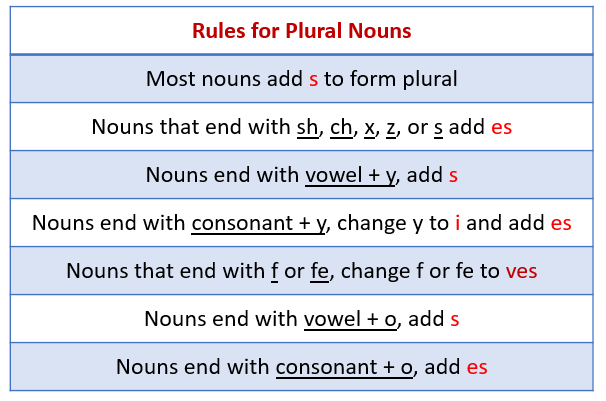Course info
Basics of English Grammar
Study all the lessons below and incorporate your learning into your speaking and writing.
Singular and Plural Nouns
| A noun names a person, place, thing, or idea. Usually, the first page of a grammar book tells you about nouns. Nouns give names of concrete or abstract things in our lives. As babies learn "mom," "dad," or "milk" as their first word, nouns should be the first topic when you study a foreign language.  For the plural form of most nouns, add s.
|
